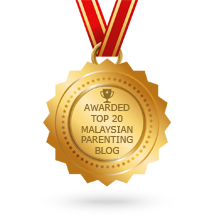“Nutrition is key in all stages of life, especially in the reproductive years for women who plan on conceiving. As the saying goes, “a healthy mother makes a healthy baby.” While every mother wants the best for her children, nutrition plays a fundamental role in paving a conducive environment for fertility to take place (pre-conceptional), a healthy pregnancy (prenatal), and a sustainable motherhood journey especially during breastfeeding (postnatal),” said Dr Sonhee Park.
Dr Sonhee Park, Senior Research Scientist in Research &
Development of Shaklee Corporation (USA) emphasised that deficiency in nutrients such as Vitamin B9 (folate) is highly
prevalent in pregnancy and breastfeeding women and their infants. Deficiency in
Vitamin B9 during pregnancy is associated with increased risk of birth defects
and in B12, iodine, and iron with other common complications in infants and
mothers. According
to the Ministry of Health in Malaysia, expectant mothers are recommended to
consume 600 mcg of folic acid, 4.5 mcg of B12, and 200 mcg of iodine per day.[1]
Organised by one of Malaysia’s leading nutrition companies,
Shaklee Products (M) Sdn Bhd (“Shaklee Malaysia”), the expert roundtable
session themed “All About Fertility & Pregnancy: Truths & Myths” also saw
other expert panellists, namely Dr Mathi Arasu Muthusamy, Fertility Specialist
& Medical Director of Fertility Associates and Dr Nurzarina Abdul Rahman, Founder
and Certified Lactation Counsellor of Gravidities Consultancy, discuss topics
surrounding pregnancy, breastfeeding and fertility.
Docosahexaenoic acid (DHA) is a nutrient that
will be transferred to the baby during both pregnancy and breastfeeding phases and
is essential for brain, eye and nervous system development.
Calcium is another essential nutrient for baby’s bone and
tooth formation. Calcium loss from mother’s bone will be increased to meet
baby’s calcium needs if her diet is lacking in calcium. Hence, it is important
to consume sufficient calcium during pregnancy and throughout the breastfeeding
period for her own bone health and for baby’s strong bones and teeth.
A long-term multiple dietary supplement study[2] conducted by the
University of California, Berkeley among 1056 participants across three sample
groups – long term non-dietary supplement users, single supplement users and
multiple Shaklee supplement users has also revealed that users who consumed
highly bioavailable dietary supplements were found to have improved health as
compared to non-users. Bioavailability is a term used to describe the
proportion of a nutrient that is absorbed from the diet and is used for regular
body functions.
Nutrients, such as iodine, improves fertility and foetal
mental development and is known to prevent miscarriages and premature births. Iron
is essential for DNA synthesis as well as haemoglobin production, the protein
in red blood cells which helps carry oxygen to body’s cells. Anaemia may occur
when the haemoglobin level is low in the blood due to iron deficiency. In
Malaysia, it is estimated that 38% of pregnant women suffer from anaemia
according to a survey by the World Health Organization[3].
A strong calcium foundation prepares the pregnant and
lactating mother to reduce osteoporosis risk in the later stage of her life
because the need for calcium increases during this stage to support baby’s
growth. Along with calcium, Vitamin D is essential to facilitate calcium absorption,
preventing Rickets in babies and children.
“One of the more common
myths encountered include the misconception that frequent nursing would lead to
poor milk production. In reality, the mother’s supply of breastmilk is dependent on
the demand. This means that the more milk the baby drinks, the mother’s body
will be able to produce a higher level of breastmilk. Indeed, breastmilk is a
mother’s gift to her child and is designed to provide the necessary nutrients
for the baby as long as required. It is important for mothers to look into
their diet, eating habits to ensure that the vital nutrients are received
adequately during the lactation period”, added Dr Nurzarina. The World
Health Organization (WHO)’s recommended period for breastfeeding recommended
that mothers should commit to a minimum of 6 months “exclusive breastfeeding”
in which the baby only consumes breastmilk and is encouraged to continue to
breastfeed (non-exclusive) up to two years of age and beyond.[4]
“In Malaysia, we observed
that couples prefer to start their families at a later age, more commonly in
their 30’s or 40’s. In general, a typical fertile couple aged 25 years will
have a 20% chance of successful conception each month. However, as women age,
the percentage is expected to fall to 17% at the age of 35 years and down to
10% at the age of 40”, said Dr Mathi Arasu Muthusamy, Fertility Specialist
& Medical Director of Fertility Associates.
Successful conception is dependent on various factors.
Lifestyle habits during the reproductive years, maintaining a healthy weight,
dietary intake and adequate exercise are elements that contributes to preparing
a conducive environment for conception.
Interested about Shaklee Malaysia’s wellness education
campaign, “Live Well, Be Well”,
Website : www.shaklee.com.my
Website : www.shaklee.com.my
Facebook : facebook.com/shakleeproductsmalaysia
[2] Block, G.,
Jensen, C. D., Norkus, E. P., Dalvi, T. B.,
Wong, L. G., McManus, J. F., & Hudes, M. L.
(2007). Usage patterns, health, and nutritional status of long-term multiple
dietary supplement users: a cross-sectional study. Nutrition Journal, 6(30).
doi:10.1186/1475-2891-6-30
[3] McLean E, Cogswell M, Egli I, Wojdyla D, de Benoist B (2009) Worldwide
prevalence of anaemia, WHO Vitamin and Mineral Nutrition Information System,
1993-2005.Public Health Nutr 12: 444-454.




























